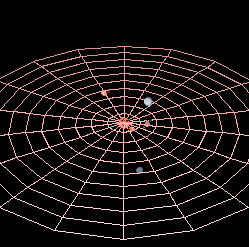Anyway, it's the run-up to the 50th anniversary of that show I used to like. As such, I'm planning on doing a 50 At 50 thang through my favourite stories about the good Doctor.
So, number 50 it is, which - perhaps, remarkably - takes us right back to where it all began:
AN UNEARTHLY CHILD
It' still really quite odd this one; the spiky, atmospheric
production reveals some inspired ideas and moments: the TARDIS of course, but
also the weird music and bizarre title sequence...and that's before we get to the character of the Doctor himself, as played by William Hartnell, who is pretty mesmerizing here.
Almost immediately, the series exists on a knife's edge of conservatism and something altogether more progressive. This is remarkable in so many ways - very few long-running series fluctuate so frequently and dramatically between political poles. Partly it's to do with the shifting personnel and the changes of writer, but even under the firm hand of a story editor and producer, it's sometimes rather astonishing in how many different directions 'Doctor Who' will go.
This story sets up a very 'establishment' foundation for the series: we get four (albeit two coded) white westerners who travel across frontiers in a symbol of that establishment's authority, law and order ( a police box) to a world of savages. And these guys will kill you as soon as look at you! They'll drop a rock on your head to crush your skull, strangle old women and more because they have no concept of friendship, see?
And our heroes are going to teach them all about it...
Thankfully, this tweeness is buried under a nicely brutal and atmospheric production, in which Waris Hussein achieves a minor miracle with the budget and resources available to him. Moreover, it is made more complex by stopping the Doctor, Ian, Barbara and Susan from becoming paragons of virtue. They're at each other's throats too!
Of course, the let's-teach-the-savages-our-enlightened-values can only really work if we ignore that many tribal societies (especially those that made it into the modern era for us to see) are nothing like the fellas in the skins here. This is an enlightened modern humanist's fantasy and, therefore, doesn't have to be rooted in any kind of historical or anthropological facts. It's a great phew! that we learnt how to be civilised and respectful to one another (hmmm...) and a warning that the little tribe aboard the TARDIS must do the same if they are to stay a unit.
After all, it's notable that the way the Doctor taunts Ian about the lack of sophistication of his culture isn't all that far removed from the dismay Ian feels when he fails to get through to Za. Maybe the only way in which we might read this as a critique of the arrogance of the technologically advanced is that the Doctor realises that his very survival was dependent on the two Earthlings he was critical of...and the longer he is in their presence of course, the more his character shifts from paranoid, ruthless exile with a selfish desire to explore on his own terms, to...well, to the kind of character he would fully develop into later.
So, very nicely, the series is already a wee bit murky. It's pretty unflattering in its depiction of the Tribe of Gum but it's not exactly trumpeting the civilised behaviour of the Doctor and his band of unwilling travellers...And there's something in that moment when Hartnell's Doc picks up the rock that reminds me of Kubrick's '2001', which is underpinned by the notion that the technology may change but we still carry the lowly stamp of our origins and must be wary of some of those base desires...if indeed, he was going to kill Za, rather than get him to draw their way back to the TARDIS as he insists. Indeed, this is nicely murky for a children's afternoon adventure series. Plus, all that clever stuff with the flash-backs in the first episode, the way the TARDIS is revealed, the flip-flop between something akin to a soap or a play-for-today into something all together stranger and the dream-like atmosphere created by the denseness and shading of grainy black-and-white. I love it!

